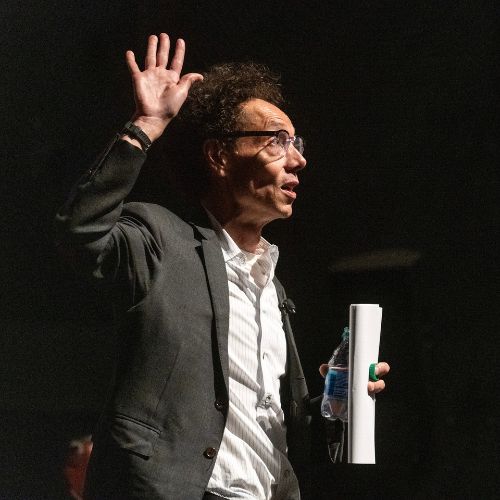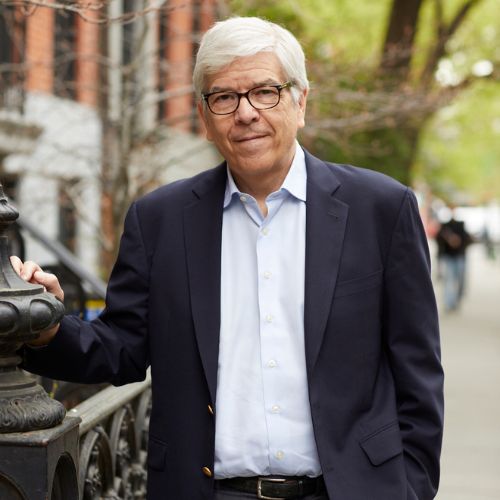Originally published in the inaugural edition of Carroll Capital, the print publication of the Carroll School of Management at Boston College. Read the full issue here.
Where do conversations about finance veer into subjects like the war in Ukraine, the challenges posed by climate change, and even the whole system of meritocracy in the United States? One answer: the annual Finance Conference presented by the Carroll School of Management.
Bringing together financial services professionals, policy makers, scholars, and others, the conference looks beyond money matters. It links finance and the economy to big questions about society, the environment, and international affairs.
For example, explaining how globalization is in retreat and regional instability is on the rise, Harvard University’s Meghan O’Sullivan told the gathering on May 12: “The world is moving to a place where it will be impossible to maximize your success andminimize your failures without a deep understanding of policy and geopolitics.”

Malcolm Gladwell at the BC Finance Conference
Delivering the keynote to a business-casual audience that crowded Robsham Theater, bestselling author Malcolm Gladwell ripped into the idea of meritocracy—the belief that success is solely a product of individual talent and effort.
Gladwell parsed out a bundle of case studies suggesting otherwise, while he acknowledged that top performers in finance and other fields undoubtedly cherish the meritocratic notion. His cases involved athletes, third-graders identified as “gifted,” surgeons, and others who succeeded at least partly because of random circumstances (like being born early in the year or belonging to a talented team) that led institutions to bestow them with special rewards and recognition.
“Achievement isn’t just about cognitive ability,” Gladwell said. “It’s powerfully shaped by context.”
Speakers at the 16th annual Finance Conference also highlighted specific developments on the horizon.
Lawrence Makovich, MCAS’77, P ’05
Energy and environmental expert, author, and instructor
There’s “no chance of a low-cost transition to renewable energy” in the fight against climate change, Makovich said, adding that this transition will also be inflationary. His good news was that the world has already made progress toward reducing harmful greenhouse gas emissions, by shifting from oil to cleaner natural gas in recent decades.
Richard Clarida
Managing Director and Global Economic Advisor at PIMCO, Vice Chair of the Federal Reserve (2018–2022), and C. Lowell Harriss Professor of Economics and International Affairs at Columbia University
The Federal Reserve seems poised to cut interest rates by the end of the year, as inflation falls to a tolerable level and the nation likely slips into a mild-to-moderate recession, said Clarida.
Marc Seidner ’88, P ’24
Chief Investment Officer of Non-traditional Strategies and Managing Director at PIMCO’s Newport Beach office
For investors, “There’s no doubt that we’re heading into a much more treacherous economic environment,” Seidner observed, citing recession worries.
Richard Bernstein
Chief Executive Officer/Chief Investment Officer of Richard Bernstein Advisors LLC.
The growing share of the federal budget going to service the national debt will eventually “cause us to both raise taxes and cut spending,” Bernstein predicted.





